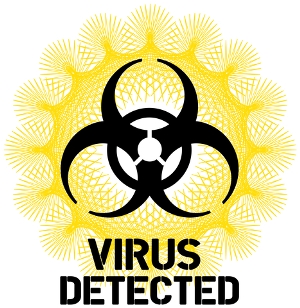What is a Computer Worm?
Worms. Most of us probably think of them as those squirmy invertebrates we dissected as a kid or found on the sidewalk after a storm. You might have used them as bait for fishing (not phishing), to pull a prank or have even eaten them (no judgment).
 Whether you like worms or not, there’s one kind of worm that definitely isn’t your friend—the computer worm. This kind of worm is a computer program that can replicate and send copies of itself to other computers in a network. Worms are considered a subset of viruses, but unlike viruses they can travel without any human action.
Whether you like worms or not, there’s one kind of worm that definitely isn’t your friend—the computer worm. This kind of worm is a computer program that can replicate and send copies of itself to other computers in a network. Worms are considered a subset of viruses, but unlike viruses they can travel without any human action.
Most worms are designed to exploit known security holes in software, although some spread by tricking Internet users. Mass-mailing worms, for instance, spread via email or instant message (IM). They arrive in message attachments and once you download them the worm silently infects your machine. Peer-to-peer (P2P) networks are another avenue for worms: cybercriminals upload infected files with desirable names to entice users into downloading them. And once you download the file your computer is infected.
Once your machine is infected, the worm can corrupt files, steal sensitive information, install a backdoor giving cybercriminals access to your computer, or modify system settings to make your machine more vulnerable. They can also degrade your Internet connection and overall system performance.
The good news is there are steps you can take to keep your computer from being infected:
- Don’t download or open any files on P2P sites.
- Since some worms now have a phishing component—meaning that they try to trick users into running the malicious code—do not click on links in unexpected emails and IMs, or download attachments connected to them.
- Use comprehensive security software, like McAfee LiveSafe™ service, with a software firewall to block unauthorized traffic to and from your computer. Make sure to keep your security software updated.
If you fear that your machine is already infected, immediately run a security scan.
Of course, given the fast-moving nature of Internet worms, your best bet is to be cautious and take steps to avoid getting infected in the first place.
Robert Siciliano is an Online Security Expert to McAfee. He is the author of 99 Things You Wish You Knew Before Your Mobile was Hacked! Disclosures.


























